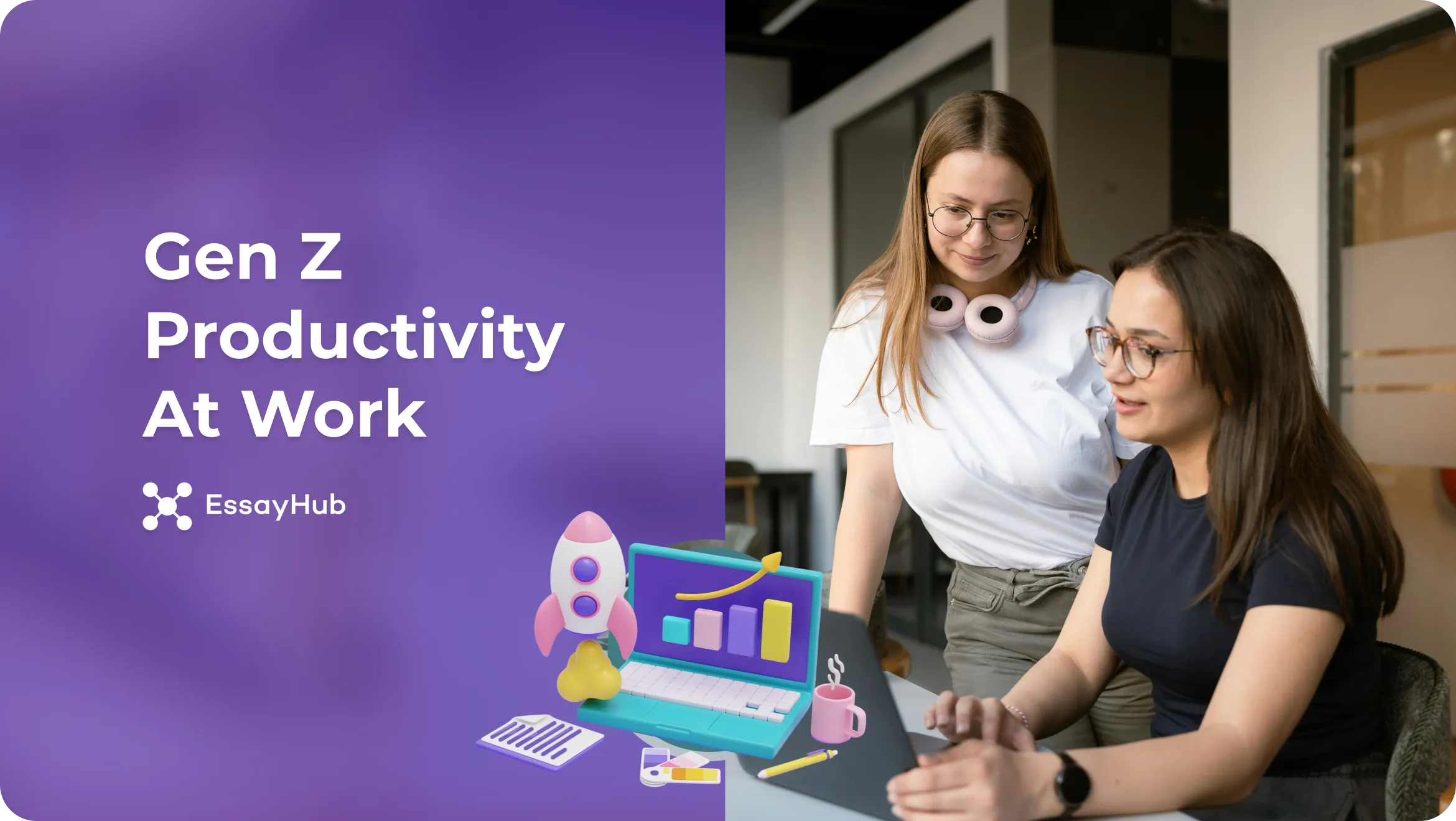From kindergarten to college, everyone has to work in teams. At some point in your life, you’ll have to participate in group work. But what exactly is group work? In general, any activity that gathers several people for a certain purpose is a team project. Below are three main benefits of group work:
- You Learn to Communicate Better
- You Get Better at Solving Problems Together
- You Build Real Teamwork Skills
Aside from the benefits of working in groups, these projects are not always effective. Even a responsible student can detest group projects and be an ineffective team member. Schools or colleges rarely teach the skills needed for working in groups. So, some have to figure everything out themselves.
Luckily for you, we collected tips for success in group projects. So, besides using our essay writer services, you have a great opportunity to become an amazing team member and avoid beginner mistakes!
Benefits for Students
This section talks about the benefits of working in a group and how collaborative work helps students grow - not just academically but as individuals too. Working together builds new skills, teaches life lessons, and makes the learning experience a whole lot more interesting. Students don't just learn information: they learn how to manage real-life situations, preparing them for whatever comes next.
Develops Teamwork Abilities
Group work shows you more than how to divide tasks. It shows you how to solve problems as a team and work out compromises. That's an experience that stays with you well past the assignment deadline.
- You become accustomed to making decisions and taking on responsibilities together.
- You learn to communicate, listen, and compromise when people disagree.
- You learn how to be there for other individuals while still keeping your own spot.
Empathizes and Deepens Relationships
Working closely with other students allows you to connect differently. You're no longer just classmates - you're teammates, and that could alter the way you see each other.
- You're able to understand where people are coming from, even when they don't feel the same way as you.
- You notice how other people are feeling in difficult situations and learn to be supportive of them.
- You might even make lasting friendships.
Adds Variety and Breaks up the Routine
Group work actually makes learning fun. It gives students a break from the usual lectures and tests, which keeps them interested and excited.
- It's a different kind of learning experience - one that is more interactive and more experiential.
- You can brainstorm ideas together, role-play, or solve problems as a team.
- That mix can also help you learn more effectively because you're part of the experience.
Working in groups also combines different minds. For instance, you can hear someone say, ‘I want others to write my case study because I don’t like writing.’ While another student loves writing but struggles with other types of assignments.
Makes It More Like Real-Life Work Experience
School group study is not too different from working in groups at work. It gives you a hint of what it's really like to work collaboratively in the real world.
- You learn about managing time, initiative, and keeping things rolling along.
- You must work with different personalities and figure out how to get things accomplished together.
- Compromise and collaboration are what you will see in most professions.
Helps Boost Confidence
Group work will make you trust yourself more, especially if other people recognize what you can do.
- When individuals hear your thoughts and recognize them, it builds trust within yourself.
- If you are one of the shy ones, group work can make you speak out in a comfortable setting.
- You start to realize that your thoughts matter, and that can influence other areas of your life.
Improves Problem-Solving Skills
Group projects are full of choices and dilemmas. That provides students with opportunities to grapple with problems at the moment, with guidance and feedback from others.
- You see how various minds approach the same problem in radically different ways.
- You learn to weigh the pros and cons side by side, then make a decision as a group.
- It is easier to deal with errors when you are not alone.
You may like an article about geniuses who dropped out of school.
Benefits for Instructors
We’ve learned about how students get the most out of group work. But students are not the only ones getting something good out of it; instructors also benefit from this type of activity. Let’s break down the benefits of group work in the classroom for instructors.
Less Repetition of Project Topics
Instructors often find it hard to distribute enough project topics for students. Group projects solve this issue by splitting the topic across a number of groups. As a result, students get to cover the topic thoroughly without repeating tasks across the class. Working in groups helps instructors to more effectively control resources while supporting diverse thinking and student learning outcomes.
- Instead of assigning the same topic to numerous students, one group gets to research it.
- This approach saves time and encourages collaborative learning through teamwork.
- It also lets teachers give thorough feedback which could be difficult and time-consuming for individual students.
Less Grading, More Insight
When students work in their own groups, instructors get to grade fewer overall submissions. This does not merely cut down on the workload - it creates more meaningful opportunities for feedback. Instead of spending hours and hours grading dozens of similar essays, teachers can spend that time providing better support and more detailed assessments that guide the learning process forward.
- One group's final answer is a representation of hard work, critical thinking, and teamwork.
- Fewer assignments mean more time to assess the group processes that went into the work.
- Group work also helps students learn to be accountable to one another, which promotes communication skills and assessment skills.
Space for More Real-World Concerns
College teaching aims for one thing - to prepare students for future careers. With group work, instructors can introduce larger, more realistic issues that would be overwhelming to a single student. Group members bring diverse perspectives, allowing it to be more comfortable and even fun to deal with complex problems.
- Group tasks can replicate real-world settings, allowing students to use problem-solving and management skills.
- The projects usually depict real-life problems in life sciences education, business, or engineering.
- Students learn to divide the work, apply process skills critical to success, and produce a stronger end product as a team.
If you're working on a complex case study or need help from reliable law essay writers, you’ve got support from EssayHub - which can become a great opportunity to become a strong team member while avoiding beginner mistakes.
Final Thoughts
At the end of the day, the ability to work on group projects is something you can develop over time. Diligence and sticking to the mentioned recommendations will definitely turn anyone into somebody who enjoys cooperation.
And remember, sometimes it’s for the best to ask for help with your studies. If you’re having academic struggles in any class, EssayHub can help you with any assignment you entrust us with.
FAQs
Why Is It Good to Work with a Group?
Students working in groups learn how to divide labor and take responsibility as well as accountability for each other. Other than improving skills, group work adds variety and makes learning more fun.
Why Is Group Work Important for Students?
Group work is very important for students since it prepares them for what’s to come in the future. Every career requires teamwork skills, which is essentially what group projects are aiming for. With this type of activity, students often face real-life challenges, something that colleges and universities prepare students for.
What Are the Benefits of Groupwork?
Group work benefits both students and instructors. It develops teamwork skills, mirrors real-life challenges, and helps students prepare for their future careers. As for teachers, assigning a group task means fewer hours spent on individual feedback for dozens of students and focusing on more meaningful feedback for a group.
Carnegie Mellon University. Benefits of Group Work. Eberly Center for Teaching Excellence & Educational Innovation. Accessed March 25, 2025. https://www.cmu.edu/teaching/designteach/design/instructionalstrategies/groupprojects/benefits.html.






